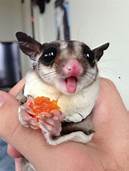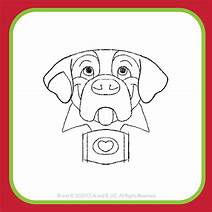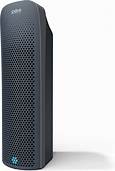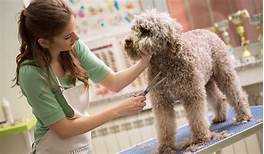What Do Sugar Gliders Eat as Pets?
Sugar gliders are small, arboreal marsupials that are native to Australia, Indonesia, and New Guinea. They are popular pets thanks to their friendly and playful nature. Like all animals, sugar gliders have specific dietary needs that must be met in order to stay healthy and happy. In this article, we will explore what sugar gliders eat as pets, including the different types of food they can eat, the frequency of their meals, and some important considerations for their diet.

Types of Food Sugar Gliders Can Eat
Sugar gliders are omnivores, meaning they eat both plants and animals. Their diet in the wild consists of a variety of foods, including fruits, vegetables, insects, and small animals. As pets, sugar gliders can eat a similar diet, with some modifications to ensure they are getting the nutrients they need.
1. Fruits and Vegetables
Fruits and vegetables are an important part of a sugar glider's diet. They provide essential vitamins, minerals, and antioxidants. Some of the best fruits and vegetables for sugar gliders include:
- Apples
- Bananas
- Berries (blueberries, raspberries, strawberries)
- Grapes
- Mangoes
- Melons
- Peaches
- Pears
- Sweet potatoes
- Carrots
- Celery
- Corn
- Green beans
- Peas
2. Insects
Insects are another important part of a sugar glider's diet. They provide protein, fats, and other essential nutrients. Some of the best insects for sugar gliders include:
- Mealworms
- Crickets
- Dubia roaches
- Waxworms
- Butterworms
- Silkworms
3. Small Animals
Sugar gliders will also eat small animals, such as mice and lizards. However, these should only be offered as occasional treats, as they are high in fat and low in nutrients.
Frequency of Meals
Sugar gliders are nocturnal animals, so they eat most of their food at night. They typically eat several small meals throughout the day, with the largest meal being consumed just before bedtime.
It is important to provide your sugar glider with fresh food and water at all times. You should also clean their food and water dishes daily to prevent bacteria from growing.
Important Considerations for a Sugar Glider's Diet
There are a few important things to keep in mind when feeding your sugar glider:
- Sugar gliders are prone to diabetes, so it is important to limit their intake of sugary foods.
- Sugar gliders also have a delicate digestive system, so it is important to introduce new foods slowly and in small amounts.
- It is important to provide your sugar glider with a variety of foods to ensure they are getting all the nutrients they need.
- If you are unsure about what to feed your sugar glider, you should consult with a veterinarian.
By following these tips, you can help ensure that your sugar glider has a healthy and nutritious diet.
Declaration: All article resources on this website, unless otherwise specified or labeled, are collected from online resources. If the content on this website infringes on the legitimate rights and interests of the original author, you can contact this website to delete it.





